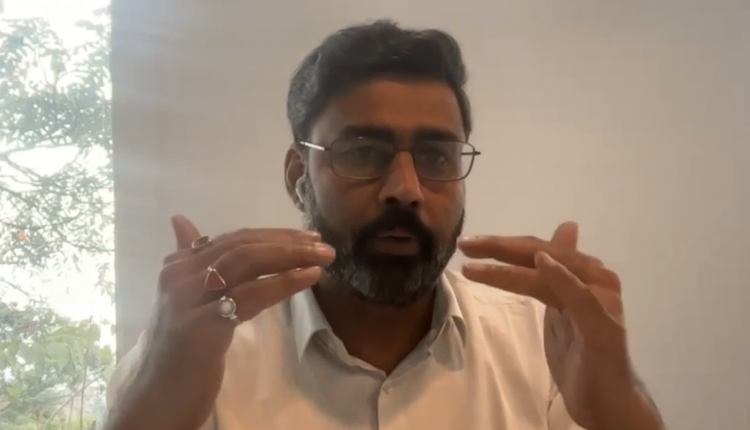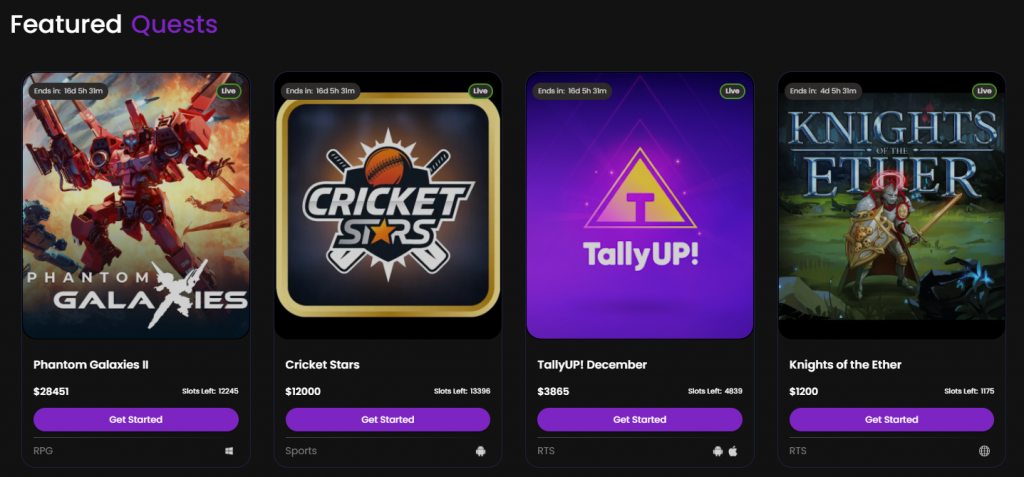How Kratos is building a global gaming community

In the latest episode of his Blockchain Gaming World podcast, editor-in-chief Jon Jordan talks to Manish Agarwal, the founder of Kratos Studios, which is building gaming communities using blockchain, starting in India but also expanding globally into countries such as Brazil, Nigeria and Indonesia.
This interview has been edited for length and clarity.
Can you give us some background about how you got into blockchain and games?
Manish Agarwal: Gaming started for me in 2010. I was running a studio for Reliance Games. It was the first studio in India to build premium games and build for western markets. My second gig in gaming was Nazara, which I ran for seven and a half years and took public in 2021. It’s the only listed gaming company in India.
Then I was completely smitten by the promise of the community economic value sharing model enabled by blockchain. And I think it intuitively appeals to me because the internet was supposed to create a democratic distribution of opinion and wealth.
So I wrote this thesis, founded Kratos Studios, published the whitepaper in August 2022, and since then we have been building. You get into doing something which is unknown. You jump out of the plane without a parachute and you figure it out. On the way you will find some fellow jumpers and together you will land. I don’t know whether you will land in the place where you thought about landing but you will land somewhere.
Can you talk about why you acquired the IndiGG guild?
I met Gabby [Dizon; YGG co-founder] and Sandeep [Nailwal; Polygon co-founder] in 2021. I was very new to the space but it was fascinating to see how Gabby was creating a huge amount of micro entrepreneurs in the Philippines. But when I looked a little more I realized these games need to be designed differently. They can’t be designed from a premium game point of view. They need to be freemium games.
And people like us who have been around for very long, we know what freemium did to the overall gaming industry as a business model versus premium. So very quickly I understood that games with NFT gating will have a shorter shelf life and that the scholar model will become a limiting factor.
I was an angel investor into IndiGG but starting to think from first principles that’s how Kratos came about. I was clear that the IndiGG business model was broken. We are not pursuing that business model. We were charting our own course.
It’s about getting the set of people with whom you’re going to be building for the next 30 years. It’s important to have those first principle discussions and honing and evolving the thinking. So that’s why Kratos formed with Gabby and Sandeep. We started in India but we are a global community. We’re migrating from the Indi.gg brand to Kratos.
What’s the advantage of these markets for your business model?
There are mature markets with 5-6% annual growth and then there are markets with turbo growth – Indonesia, Middle East, Brazil, Turkey, Egypt, Africa. These are the markets where I think the next decade of gaming growth is going to happen.
I know about these markets. You need to have a very strong local community grassroot presence. You need to have a local statutory understanding. You need to have local connections because the consumer behavior is nuanced. Global publishers are reluctant to put boots on ground. And that’s where building these markets, these distribution platforms where the global publishers can get access to local communities is what we are going after.
In my previous experience, I’ve worked extensively in the Middle East, Africa, India, Southeast Asia. Understanding consumers and navigating the system is important. As a publisher, you need communities, you need local payments, and you need local statutory compliance. There is economic value exchange happening between gamers and publishers. Building a gamer-first platform means players get to have fun and publishers can engage with new gamers and increase their sales. That’s the platform we are building.
Is this just about players earning from playing games?
We think there are earnings, there is fame and there is power. Earning, fame and power drives the entire engagement retention of gamers. If you are able to build levers for them to enjoy these three things, you would be able to create a very sticky, highly engaged community which is of use to global publishers.
In particular, you can create a lot of fame groups through hyperlocal grassroots decentralized tournaments and that’s the model we’re using. Fame doesn’t need to be at a super national level or international level. It’s an aspirational pyramid. Even if I get famous in my college or in my community, it’s great.
That’s the true insight which we are really working on – it’s that combination. Think of it as a cocktail which you are providing to your community and which is beneficial for the publishers.
How do you think about building a sustainable earning system?
If you look at the larger problem [with Axie Infinity], the community was just taking the money out. In our model, what we are seeing is a gamer community. If there is asset ownership, they will love to purchase it so it’s a circular loop which you’re creating enabled by the asset ownership and P2P marketplaces. This makes these guys to not think in spending but think as an investment.
This is what’s really going to be a game changer for these markets because the friction of spending is being replaced by an investment in future value creation.
Can you talk about what you’re been doing over the past year?
I’m very happy with the extended Kratos family. We started with a few of us. Now we have a 1.2 million gamer family, which is run by 14,000 clan chiefs on our platform. Since we started in India, we have an advantage there. We have clan chiefs in 168 cities. But organically, we started getting clan sheets from Bangladesh, from Nigeria, from Egypt, from Turkey. Now we have expanded into Brazil. So the Kratos family has grown big.
And all of this has happened with zero consumer acquisition cost. This is a completely community-led approach. And we have been walking the talk by distributing more than a million dollars of income to the community from game publishers in a very transparent manner. From that perspective, walking the talk is saying that economic value sharing is happening with the gamers.

Our game publishers are very happy too because we have created a product called Gamified Progression Quests. This means publishers are not paying for a download or registration or top of the funnel. A gamer is coming and playing and the more they play, the higher they rank on the leaderboard and the higher they rank, the more money they can make. So the publisher is paying for very high engagement, not just downloading a game, which is the core issue in web2 that Facebook or Google spend only gives you a top of the funnel.
For us, we’re solving the problem because we have a product at scale that gamers love and publishers get ROI. That’s what we have been able to deliver through a product tech platform.
We are delivering upwards of 100,000 quests a month now. We have 20, 21 game publishers wanting to access this community. We have worked with more than 150 game publishers in the last 12 to 14 months and the good thing is it’s not just web3 games which are coming to us, even web 2 games have started to come. For example, Valorant wanted to build grassroot communities in India. And they realized after working with us that the clans are new cafes. Because in cafes, people go to hang with their friends. Clans are nothing but friends coming together to form a clan and clans are new cafes.
It’s interesting that you can plug web2 and web3 games into your platform.
This whole web2, web3 is what all of us keep talking about in the boardroom. A gamer really doesn’t make a difference between web2 and web3. They are coming to play good games. You need to give them good games. You need to have games which they can play with their friends. Whether it’s web2 or web3 doesn’t matter. And it doesn’t matter for our platform either. Web2 games have the same problem of LTV [LifeTime Value] and CAC [Customer Acquisition Cost] as web3 games. For us, blockchain is being used to build an immutable trust reputation onchain.
At GDC, we’re excited to relaunch our reputation system. From our 1.2 million gamers, we have almost 20 millions attributes and that will allow us to build Kratos as the oracle, one source of truth for gamers to see their reputation and for publishers to look at those reputations.
How are you integrating blockchain into the platform?
The one thing I always tell my team is if tomorrow Kratos were not to exist, will publishers miss us? Will the gamers miss us? Publishers will miss us only if we were able to generate revenue, reduce their costs and create a better return on investment.
So it is important for the community to also spend on games. That’s why we are launching our own crypto store; a marketplace where game publishers can give us their NFT APIs and we can integrate. We’ll enable on-ramp capabilities from fiat as well as crypto so that the community can make purchases. That will be launched in the coming weeks.
From our perspective, these are the two big things we are building. We are building a gamer and publisher engagement platform and a store. These two things will ensure there is a circular economy loop of the community earning money and spending money, and publishers giving money to the community and taking money from the community.
You can find out more about Kratos Studios via its website.

Comments are closed.